Blogs like mainstream media, are double-edged swords. Even global mainstream medias have online publications and have their own blogs as well. Its the use of technology for communication...can be used for good of society and can be for evil to contaminate society as well. So, when I came across comments in the media that blogs are only for intellectuals...I am not sure if I should feel elated or otherwise. I suppose that was meant for political blogs. My blog will remain to be apolitical. Let other blogs discuss politics. Partisan or Global whatever...but I choose to remain eclectic in my choices of articles to reproduce or link. Mostly it would first appeal to me, something new and interesting, something scientific but mostly it would be something I would be passionate about like management & leadership Gurus, something strange that catches my attention besides the usual rantings and musings and my own silly comments ...well...what would you expect? This is, by the way...sort of my online virtual diary....heheh. Do enjoy the article below...oh well if you can spare the time why not go directly to economist.com then? cheerio and go enjoy the rest of the weekend. I have a charity golf session with Bank Muamalat tomorrow at Rahman Putra Golf Club, Sungei Buloh...will try to upload some 'you're on candid camera' shots or rather much like 'you're on caddy camera' shots...tomorrow night...hahaha. I am very much a social golfer these days...playing golf about 3 or 4 times a year doesn't really qualify you as a golfer you know! hahaha. For tomorrow, the motivating factor is actually playing on the first, VIP flight together with the Chairman of Bank Muamalat...that's the real attraction...heheh..doesn't matter if I am going to lose plenty of golf balls in the otherwise lake-full course...hihi. So long as my shots stay on the fairway...just a few metres away from the single-handicappers (heheh), no unnecessary OBs and by the third drive I am on the green...I reckon I should be OK....The pressure of the game will be on those competitive fellows...not me, I will just play my usual 'pensioner' style tee-offs!! hahahahahahaha
A new old idea
Sep 6th 2007
From The Economist print edition
Telecommunications: The idea of sending information through the air in the form of flashes of light is being given a high-tech makeover
WHEN most people switch on a desk lamp, they usually want a little extra illumination. But not John Goodey, an engineering student at Oxford University. When he flicks the switch and turns on his lamp, a sensor on his desk downloads music tracks digitally encoded within tiny flickers in the lamp's light. The music is then relayed through a pair of nearby speakers. This unusual set-up offers a glimpse of a future in which light, rather than radio waves, is used to send information. The concept, known as optical wireless or free-space optics (FSO), promises better security and higher data-transfer rates (up to 10 gigabits per second) than existing radio-based communications technologies, says Dominic O'Brien, a leading engineer in the field and Mr Goodey's research supervisor at Oxford.
FSO is already used in a few niches: to connect networks in nearby offices without having to string cables between them, for example. But plans are afoot to extend the idea into a number of new areas. For example, the subtle flickering of car headlights and tail-lights could be used to transmit speed and braking information to other vehicles, to help prevent collisions. Traffic lights could alert cars when they are about to change, or broadcast the latest congestion update to waiting vehicles. In the home, FSO could be used together with interior lighting to provide extremely fast internet downloads. Since light does not travel through walls, there would be no need to worry about neighbours snooping on your e-mail, or piggybacking on your broadband connection.
Futuristic though this sounds, FSO is by no means a new idea. Soldiers in ancient Greece used polished shields to send battle orders to each other over vast distances in the form of flashes of sunlight. More recently, so-called “heliographs” have been used to relay military signals in a similar way. And it is only in the past ten years that the British navy has phased out its use of Aldis lamps to convey Morse code signals from ship to ship. Yet just as this old analogue technology was being retired, its new digital counterpart was making its debut. In the past few years a small number of companies, such as Terabeam, LightPointe and Cablefree Solutions, began offering businesses point-to-point optical systems that could send data between buildings.
These early optical systems were capable of sending information at a rate of hundreds of megabits per second (Mbps), but customers usually wanted only about 10Mbps, says Stephen Patrick of Cablefree. Back then the attraction was not speed but convenience, he says. Advocates of FSO like to say it has the speed of a fibre-optic link, and the convenience of a wireless link. It is easy to set up: simply hook up infra-red laser transceivers on top of two buildings and then align them. “The cost to install is very low,” says Mr Patrick.
There is no messing about with radio-spectrum licences or digging up roads, and FSO can also bypass prohibitive planning restrictions. In places where transmitters are not allowed on roofs, for example, indoor FSO transceivers can simply send and receive data through closed windows. FSO is also secure: the only way to intercept the signal is physically to intercept the beam.
As a result, hundreds of businesses, hospitals and universities are already using FSO. City skylines are not criss-crossed with grids of laser beams because it is all done using invisible infra-red light, says Mr O'Brien. Today's technology can transmit data up to 4km (2.5 miles) at speeds of 1-3 gigabits per second (Gbps).
Telecoms operators are starting to take an interest in the technology as an alternative to the microwave-radio “backhaul” links that are used to link mobile-phone base-stations to operators' core networks. FSO's main drawback is that bad weather, such as rain or fog, can interrupt the signal. But Mr Patrick notes that microwave links are also prone to atmospheric interference. Provided FSO is set up over relatively short distances—say several hundred metres—it is a reliable technology, he says.
There is no need to worry about bad weather when using FSO indoors, of course. But maintaining a line of sight can be a problem for a laptop that is being carried around within a home or office. One solution is to use a diffuse light source rather than a laser beam, says Mr O'Brien. Using the natural reflectivity of ceilings and walls, a transmitted infra-red signal can be received by any number of receivers within a room. But this approach reduces the pace at which information can be transferred. “Most of the light doesn't go where you want it to,” says Mr O'Brien. Nor is it possible simply to crank up the power of the source beam, because infra-red light at high intensity can cause eye damage.
So Mr O'Brien has been working on a ceiling-based system that tracks where a receiving device is, and then sends it a signal using several laser beams from a directional transmitter. He has built a prototype that runs at 300Mbps, nearly six times faster than today's typical Wi-Fi links and reckons that speeds of up to 10 Gbps are feasible. That is not to say that Wi-Fi is obsolete. Instead, the two technologies may end up being used together: Wi-Fi as the uplink, and FSO for the much faster downlink.
The long-term hope is to transmit data using visible light emitted by indoor lighting. In Japan the Visible Light Communications Consortium, made up of industrial giants such as Sony, Toshiba and NEC, is pursuing just that goal. FSO is not possible with existing indoor lighting because incandescent bulbs cannot switch on and off fast enough. But that is not a problem for white light-emitting diodes (LEDs), which are expected to become far more widespread in the coming years, because they use less energy and are more versatile than incandescent bulbs. The combination of LEDs and FSOcould then be used to provide internet coverage throughout a home or office. Could it be lights out for radio networking?











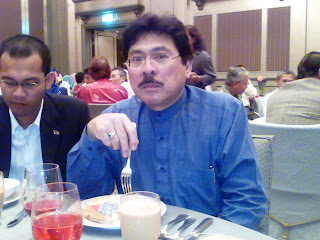
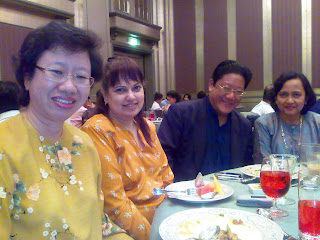


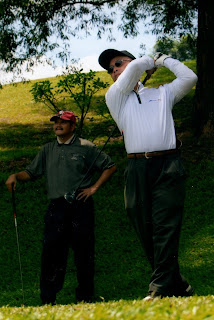

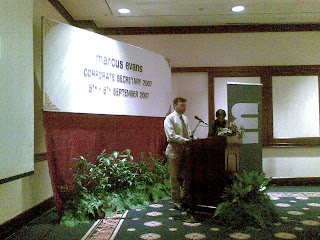.jpg)
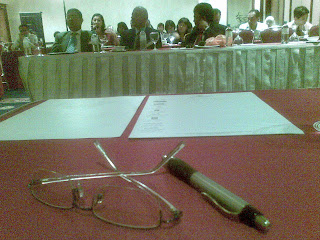.jpg)
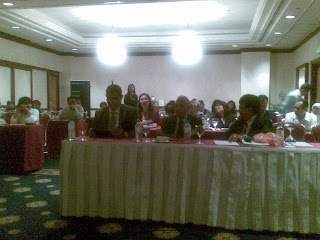

.jpg)